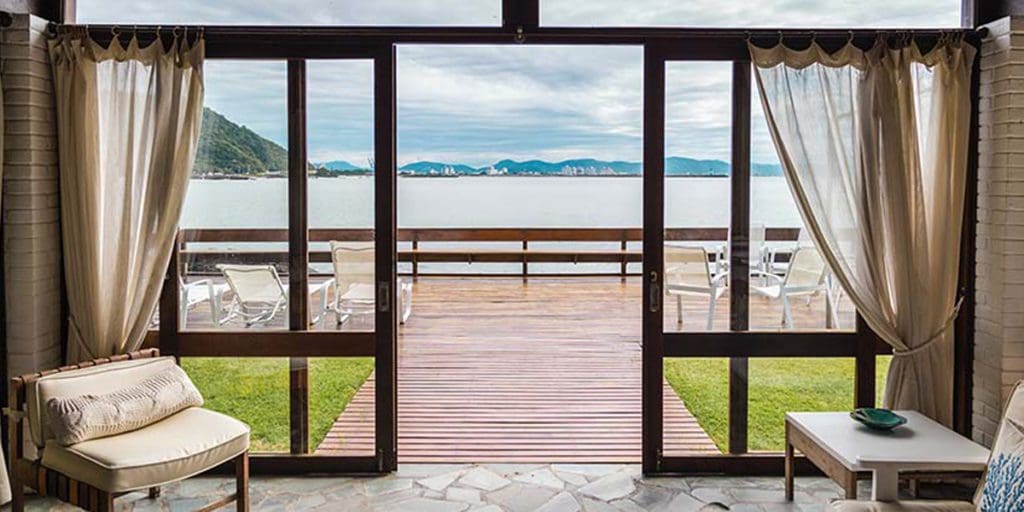
Since the pandemic, many people have been looking for a new adventure. Vacation home sales increased at the start of COVID-19, and now that remote work is a reality for so many, owning one of these houses seems even more appealing. These properties let you spend time in your favorite places, bring families closer together, and can even be great financial investments.
That being said, no matter your dream destination, buying a vacation home can be challenging. If you’re thinking of purchasing a home away from home, here are some considerations to make and some tips for getting started.
1. Establish Clear Financial Goals
Before purchasing a vacation home, it’s important that you establish clear financial goals. Ideally, if you’re in the market for this kind of investment, you’ve already paid off your first mortgage or are close to doing so. It’s still possible to own a second home without having paid off your initial mortgage, but you’ll need to be realistic about how much house payment you can afford. Regardless of whether or not there’s a remaining balance on your primary mortgage, calculating what you can realistically pay for a home is an important step in the buying process.
A house is a large financial investment, and buying your second home can be more difficult and more expensive than buying your first. Since vacation homes are not primary residences, there’s a greater chance of defaulting on these mortgages if the borrower runs into financial hardship. This makes loans for second homes a higher risk to lenders, and usually brings with it stricter requirements to qualify. Your home loan will probably be your largest expense, but not the only one you incur.
Depending on the location of your vacation home, there are several other financial considerations you’ll have to prepare for. For example, your insurance could be more expensive to accommodate natural disasters and other regional risks. In the same way that the beach can be an attractive spot for a vacation property in good weather, it can also expose your home to high winds, hurricanes, and floods. Furthermore, you’ll need to bear in mind the cost of utilities, maintenance, HOA fees, and travel costs – all of which will vary by location as well.
2. Decide What Type of Home You Want
If owning a vacation home is financially feasible for you, you’ll need to decide whether you want to buy or build new. While the thought of building your dream vacation home can be appealing, it’s important to understand that it can come with drawbacks. Building restrictions and strict homeowners associations aren’t uncommon in popular vacation areas which can make constructing a new home a lengthy and expensive process. If you’re set on building, make sure you’re familiar with local regulations to avoid any conflicts.
If you’re looking for less hassle, you might want to consider buying a pre-existing home. Material and labor shortages have extended the amount of time it takes for custom builds, so you’ll likely be able to settle into a new place sooner if you choose to buy. Moreover, buying a home can be more affordable as construction projects are notorious for going over budget. If you’re worried about customizing a preset house, any money you save buying the existing property can go toward renovations.
Properties located in popular vacation areas can have higher-than-average prices, so a less expensive option that some buyers opt for is a timeshare. Timeshares allow you to split the cost of homeownership with others, but it’s important to note that they aren’t always good investments. Timeshare contracts and booking agreements can make spending time in your home difficult and might prevent you from renting to others. On top of that, timeshares don’t usually do well on the market. If they do sell, you’re likely to lose money. Keep these things in mind before committing to a timeshare, but do your research before completely ruling them out.
3. Choose Where to Buy
Choosing the location of your new home is just as important as deciding the type of home that’s right for you. Whether you’re thinking of buying cross-country or overseas, you’ll need to weigh your options carefully. If you’re buying in your home country, you might be eligible for certain tax benefits. Financing a home in your own country will be simpler, along with the rest of the home buying process, though it can be more expensive than buying a home abroad.
If you’re planning to purchase a home in a country where you don’t have citizenship, you’re subject to the laws and restrictions that come along with being a non-citizen. Even if a country does allow non-citizens to buy and own property, you might have to obtain special permits or register with the local government. Being unfamiliar with any rules that affect you can lead to disputes over ownership and property rights as well as conflict with locals. This is why it’s especially important to acquaint yourself with the appropriate laws, cultures, and traditions when purchasing a home abroad.
Regardless of where you buy your home, you’ll need to have a travel plan. Since the COVID-19 pandemic, a lot has changed with public and private transport. Depending on where you want to buy your home, you may need to take extra precautions. In some parts of the world, health screenings are still necessary for visitation. Make sure you research COVID travel guidelines before making any big plans, and take these into consideration when you buy your home. In addition to any travel requirements, make sure you’re familiar with local health and safety policies as well.
4. Familiarize Yourself With the Location
In order to plan for any additional expenses or surprises, it’s important that you familiarize yourself with the area surrounding your new home. One thing that should always be taken into
consideration is the region’s cost of living. This can vary drastically from place to place, so you’ll need to ensure that there are options in your area that fit your budget. It might not be practical to buy a home in a place where the cost of necessities like transportation, food, and medical care are significantly more expensive than what you’re used to paying. Make sure that you’re financially equipped to cover living expenses in the area so you can make the most out of the time you spend in your new vacation home.
If you’re buying a home in an area you’re unfamiliar with, be sure to research the climate there. What’s the weather like throughout the year? Will your pipes freeze in the winter? Is the area susceptible to floods or wildfires? What’s required for home maintenance is partially dependent upon the climate, so it’s important that you research the location to be sure that your home is fit to survive the elements. If it’s not, you’ll need to budget for the necessary renovations and repairs.
Familiarity with the location’s climate can also stop you from buying a home that’s a money pit. For example, if you know the area is susceptible to flooding, you can have the home inspected for pre-existing damage prior to purchasing. You might not want to take on the added cost or stress of renovations and repairs, so having an idea of what the house has been exposed to is a good way to avoid buying a property with hidden problems.
5. Hire the Right People to Help Throughout the Process
When buying a vacation home, consider hiring a real estate agent who’s familiar with the area. A local agent will know the average market price and trends in the region, and they can help you find the best neighborhoods and local amenities. The same goes for contractors and inspectors. A true expert will know the area that they work in just as well as they perform their job duties. Chances are if they aren’t familiar with the area, they won’t be able to properly advise you.
Hiring the right help during the home buying process is just as important as finding the right help once you’ve made a purchase. If you’re planning to buy a second house, you need to decide how you’ll maintain the property when you aren’t around. Many vacation homeowners opt to hire local property management companies to care for their homes while they’re away. Property managers usually have their own network of landscapers, house cleaners, and other professionals that might be necessary to maintain your home. While this is a great option if you plan on renting out your home, you don’t need to be a landlord to benefit from hiring a property manager.
Buying a vacation home is exciting, but the process can be challenging. Whether you’re looking to buy domestically or abroad, it’s important to have the tools for making the most of your money and your time spent there. Remember to stay informed and find the right help, and soon you’ll be enjoying a brand new space.
If you’re buying a home abroad, be sure that you and your family have the necessary travel documents. Whether it be a passport, visa, or something else, make sure that these documents stay up to date so that you don’t run into any problems while traveling to your new home. For more information on traveling to your second home abroad or keeping your documents up-to- date, please don’t hesitate to contact a member of our team. No matter the destination of your dream vacation home, we’ll get you there!
